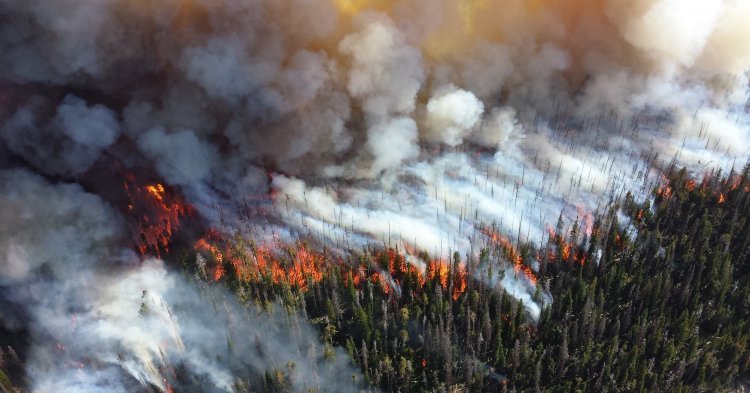As a matter of fact, I do not quite see the point of it.
Let me explain. Three years ago, I watched the 31st installment in Toho Studios’s Godzilla film franchise, Shin Godzilla (marketed outside Japan as Godzilla: Resurgence). The reboot was of interest of me because the series had been a favorite of mine when I was a child, and I was curious to see why the studio had chosen to resurrect it with a more environmentally-conscious message.
In all fairness, the movie did a lot to take the series back to its 1956 origin, when “Godzilla” still referred to a horror movie drawn from the imaginations of those who had lived through the Hiroshima and Nagasaki bombings. In Shin Godzilla, the monster is more than just a nightmarish creature created from nuclear waste—it is a metaphor for two of the most significant catastrophes to affect Japan in the 21st century, the Tōhoku earthquake and the subsequent Fukushima nuclear disaster. By depicting the officials charged with handling Godzilla’s arrival as inept and excessively bureaucratic, the film also made a strong criticism of how these real-life situations were handled by Japan’s government.
A couple of years before that, Americans had also had their own chance to put an environmentalist spin on Godzilla’s dark, Atomic Age roots. The simply named Godzilla, which came out in 2014, remade the monster’s origin into that of a titanic prehistoric beast that had been reawakened by the testing of nuclear weaponry. In contrast to Shin Godzilla, the American film focused more on the smallness and vulnerability of human beings in comparison to inexorably destructive forces of Nature. I remember how promising these premises seemed to me. Aha, I thought as I walked into the theater, this is an excellent chance for the series to receive an important, contemporary update.
But in both cases, the “update” was really nothing more than a gloss. Perhaps in a different Godzilla movie, the titular creature would have made landfall in Bangladesh, not Hawaii; perhaps its tsunami-inducing arrival would have killed and displaced thousands of the world’s poor, not hundreds of affluent beach-goers; perhaps, instead of hurriedly moving the camera towards a conflict with another giant monster, it would have lingered upon a father finding the pallid corpse of his youngest daughter, her body covered in plastics and other bits of trash.
But it was not to be. And what, pray tell, happened to Godzilla afterward? In 2017, Toho Studios released its first fully animated Godzilla title, Godzilla: Planet of the Monsters. In 2019, the United States followed suit with a sequel of its own, called Godzilla: King of the Monsters. Each of these films were as fantastical and frivolous as their titles suggest. In essence, after 2016, the possibility of a morally serious, politically resonant movie featuring an iconic character dissipated, and everyone with rights to the Godzilla franchise went back to producing rock-’em-sock-’em monster movies.
It is easier to do what we think is normal, I suppose. This is, in fact, one of the most persistent lessons of history: the status quo may be unpalatable and untenable, but at least it is familiar, and for this reason, there will always be plenty of people to support it. In this regard, I am inclined to see what happened with the Godzilla film franchise as a symbol for larger social problems. Yet for some reason—and maybe it has something to do with the latest warning from the United Nations, indicating that we are on track to increase the temperature of our planet by more than 3º Celsius—the status quo has also come to seem deeply immoral to me.
If some armed radical were to begin waving a weapon at one of our incompetent politicians or rapacious businessmen, there would no doubt be much talk of physical violence. Left-leaning intellectuals and journalists, observing the widespread inequalities in our societies, are also apt to talk of symbolic or structural violence. Yet the moment we begin to talk about the climate crisis, and particularly of the environmental policies of men like Donald Trump and Jair Bolsonaro, this useful little word is nowhere to be found. And why is that? Why do we not talk earnestly about climate change as if it were something devastating that we are responsible for—something that will forcibly rob many people around the world of their dreams, their homes, and their lives? Why do we not speak truth to power, and speak of inertia as if it were an act of violence?
Another persistent lesson of history is that far-reaching social transformations either happen very slowly or in great, short bursts of upheaval. With regards to the climate crisis, the only option left to humanity is the latter. But, as a member of the generation that has been asked to do in a few decades what might normally take more than a hundred years, I feel that it is my duty to report: my generation will get nowhere without an enormous contribution from people in power everywhere. If the leaders flocking to Madrid this December are willing to make that contribution, all for the better. But history has taught me to not hold my breath.

Follow the comments: |
|
